An air conditioner's breaker size will help protect the unit from unintentional damage during a power interruption. However, most AC users find it hard to identify the correct size breaker for them to have.
Knowing it, particularly for your 230-volt air conditioner, is a must thing you will do. Throw your worries away! We've done in-depth research on this matter to get all the answers you need.
Generally, an air conditioner with a supply voltage of 230V will require a 30 amp size breaker to operate effectively. This would be fine, of course, if the 30 amp breaker would only serve the AC.
However, your air conditioner's electrical component will become more unstable over time. Thus it's affecting its energy efficiency.
Considering this factor, instead, use a 40 amp breaker to avoid any issues that might occur in the future. In addition, you can also check your owner's manual for the proper size breaker guidelines.
By this article's end, you'll know what size of wire is advisable to use in your air conditioner's specific breaker. We'll also provide information on the consequences of using an improper size breaker.
So continue reading to learn more vital knowledge about this topic. With that said, let's jump right in!
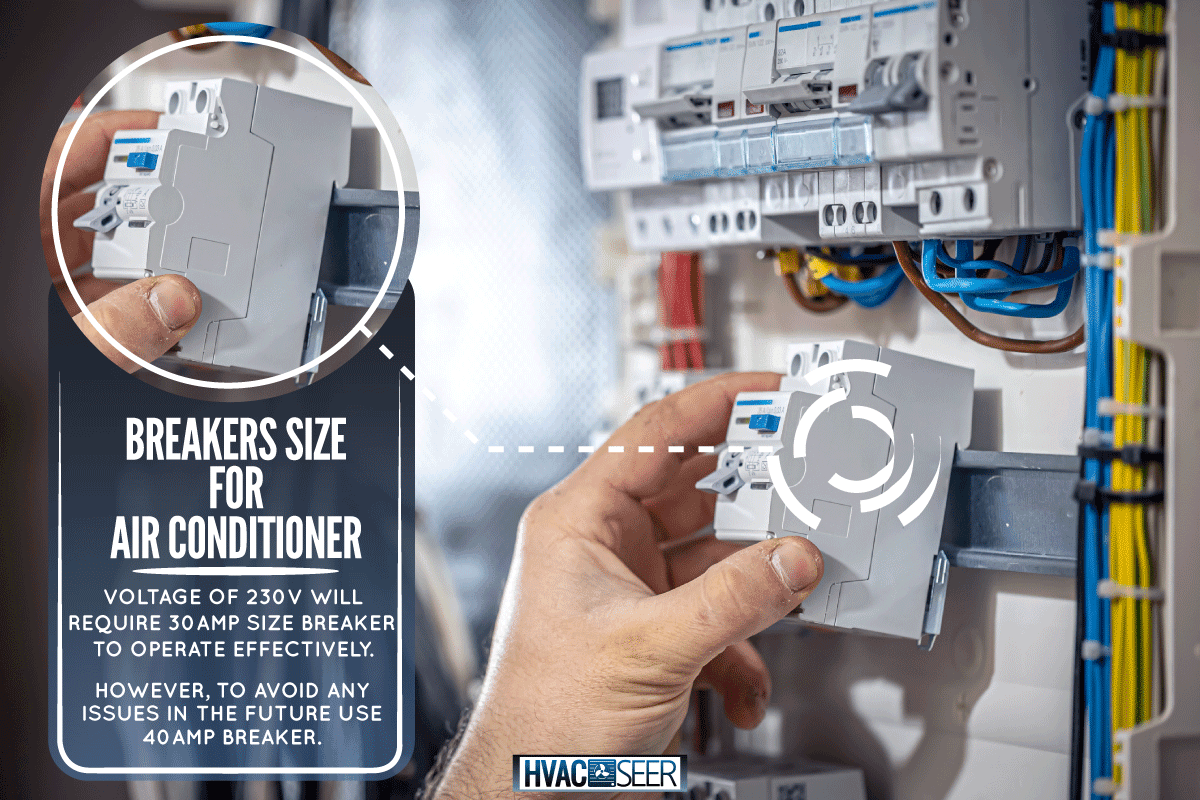
What Size Wire Is Ideal For A 40 Amp Breaker?
The circuit breaker is just one vital part of the electrical circuit. One key factor in safeguarding your air conditioner or, should we say, all your appliances is to use proper wire size. A 40-amp circuit breaker is a fairly powerful breaker.
You can use an 8 American Wire Gauge or AWG wire size to match your 40 amp load capacity breaker. This is the ideal wire size to secure your air conditioner's operation while constantly serving comfort in your home.
Meanwhile, as we suggested earlier, you can advance proofing your electrical devices and their wire by using a bigger wire size.
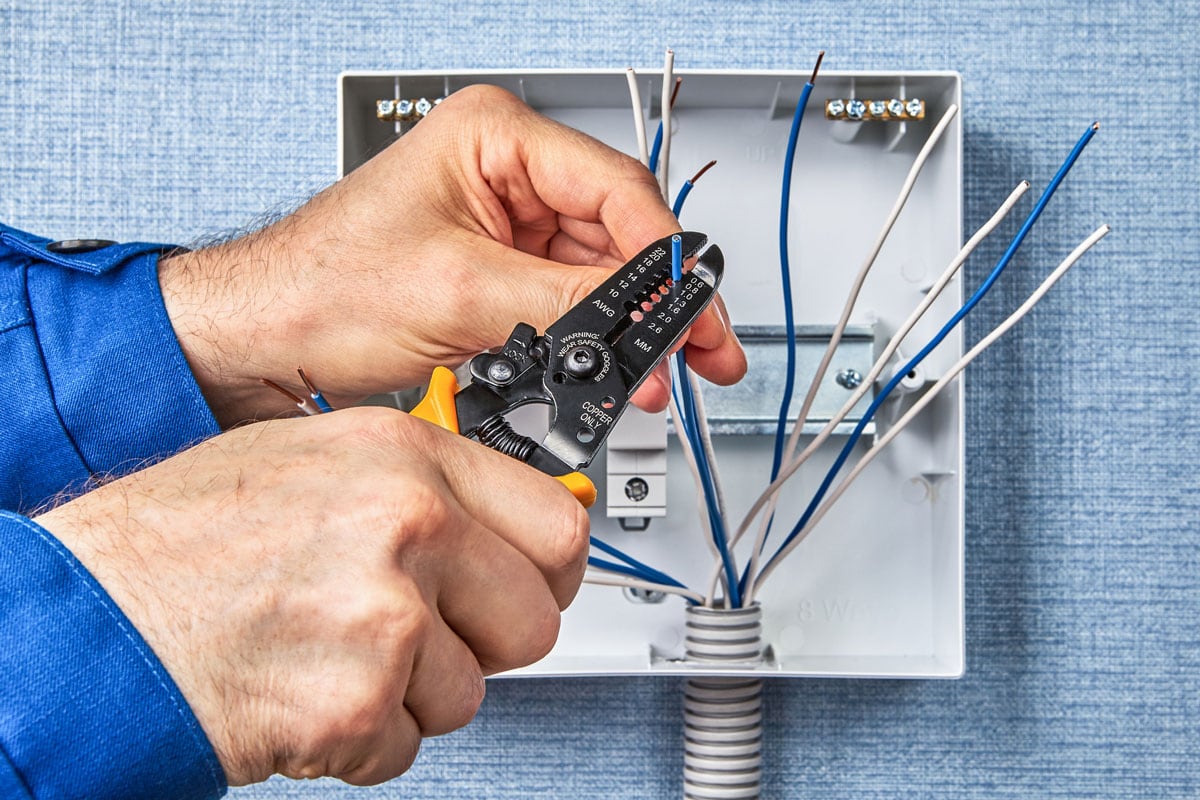
Why Does My Air Conditioner Need A Separate Circuit Breaker?
There is a specific circuit breaker for each type of equipment, including air conditioning systems. These appliances will need a lot of power to run correctly, so connecting them to separate circuit breakers is a great move.
For instance, if you're adding a new air conditioner unit to your home. You should inspect all your electrical wiring, whether it is up to date.
In contrast, when replacing your overly old air conditioner unit, its old circuit breaker is also subject to check-up. Verifying that it's well fitting in your new air conditioner unit makes its operation even perfect.
Benefits Of Having A Dedicated Breaker
In your home, a separate electrical circuit serves several purposes and offers advantages. By wiring properly all of your appliances with this type of circuit breaker.
You can avoid any serious issues like escalating fire or breaker trips.
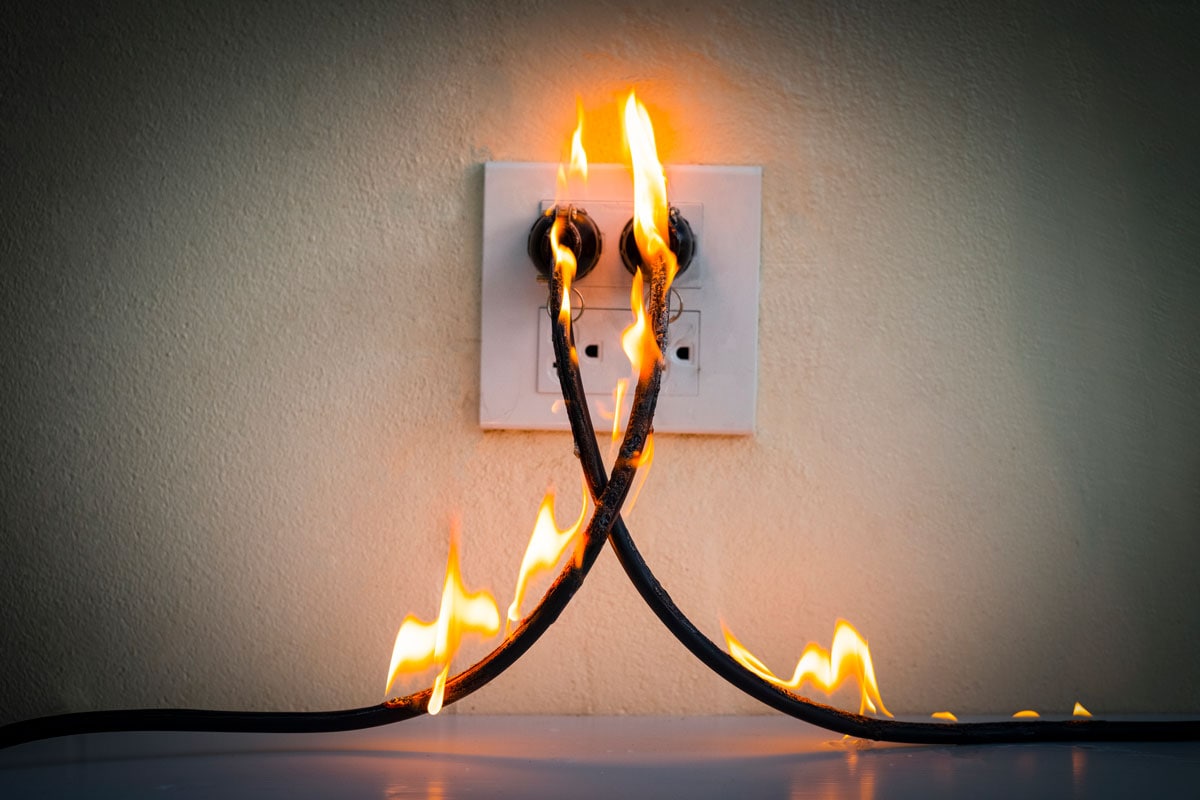
You may achieve the full benefits of your air conditioning system with the help of dedicated circuit breakers. This will gives you peace of mind without worrying about electrical trips on hot summer days.
How To Calculate The Size Of A Circuit Breaker
If you select a circuit breaker too small, it will trip each time it needs power. Look for the wattage on the description label of your air conditioner unit to determine the breaker size properly.
Make a note of which unit uses the most electricity. You can also inspect the voltage description on its label or in the owner's manual.
Check the plug on the air conditioner in case you forgot to check the voltage requirement.
Keep in mind that if it has a standard household socket with three straight prongs, it requires 120 volts of power. Subtract the number of voltages from the plug and 120 volts from the wattage you recorded.
The results will show how many amps your circuit breaker can handle.
How Many Types Of Breakers Can You Use In Your Home?
A circuit breaker is a safety device that detects abnormal electrical currents in your home. During this process, the breaker will trigger to instantly switch off to protect your home or appliances from damage.
In your home, you'll have a wide variety of breakers to choose from:
Single Pole Breaker
A pole breaker or a single box can provide up to 120 volts at various amperages. This type of circuit breaker frequently draws between 15 and 30 amps and is good for systems like lighting systems.
Double Pole Breaker
A double pole breaker uses two circuit boxes connected in series to generate up to 240 volts of energy. It is best at supporting heavy-duty appliances such as air conditioners, dyers, and dishwashers.
Arc Fault Interrupters (AFCI)
This breaker shuts off your home's power source when it senses an electrical arc in the system. A faulty wiring system is a major cause of why this issue occurs.
Ground Fault Circuit Interrupters (GFCI)
GFCIs also function nearly the same as other breakers. It also turns the power off instantly when it identifies a fault current in the system.
NOTE: These breakers will only work best if you install them correctly. We highly suggest calling a certified electrician whenever you install them in your home.
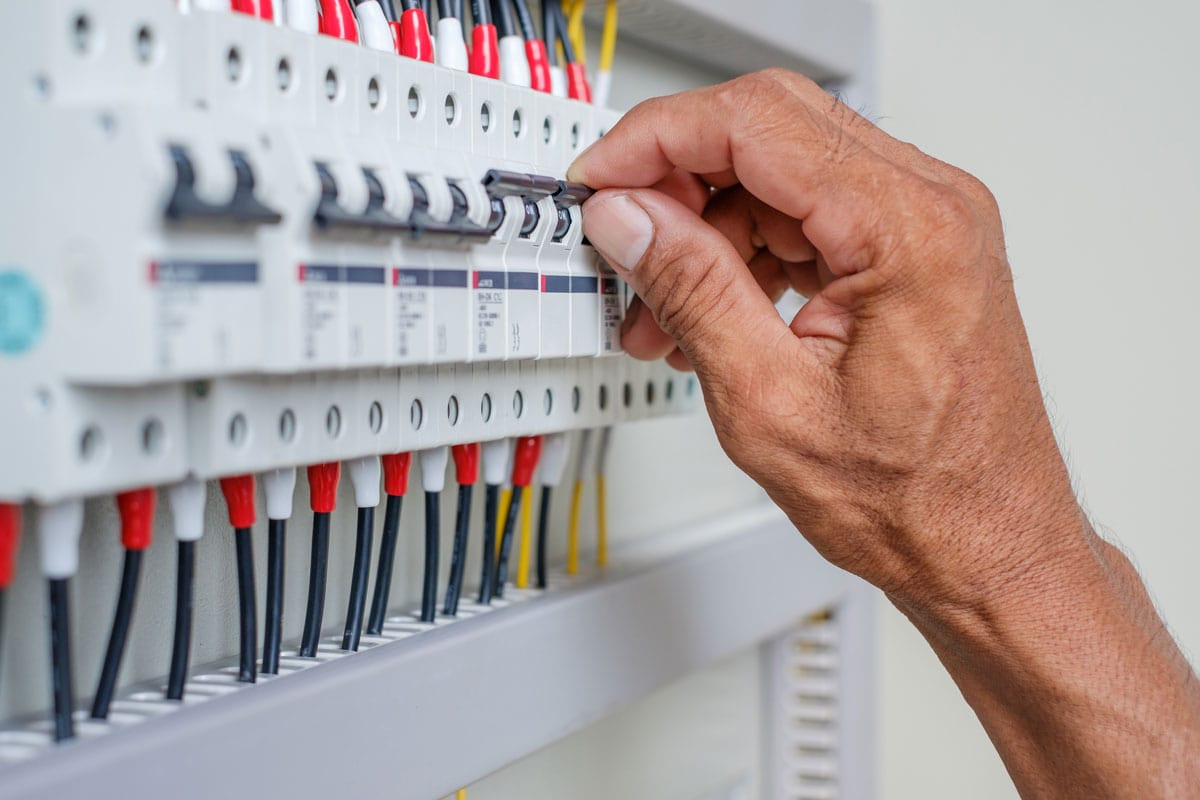
What Size Breaker Do I Need For A 3-Ton AC?
The average breaker size for a 3-ton air conditioner unit is around 30–40 amp. Yet, the ampacity from the manufacturer's recommendation will ultimately determine the breaker size.
Installing your air conditioner unit takes more than just its breaker size itself.
Sometimes, before you purchase an air conditioner, you might also need to understand its electrical terms to ensure better functionality.
What Is Amperage, Voltage, And Watts And Their Differences?
Air conditioners are commonly labeled with three distinct electricity measurements: voltage, amperage, and wattage.
Moreover, each refers to a particular aspect of the air conditioner's electrical operation.
Amperage
Amperage is the short-term for electric current, and its measurement unit is amps. It expresses the amount of electricity that travels between two points in a specific time.
Voltage
In contrast to amperage, voltage considers the complete electrical circuit.
A voltage or electromotive force is a quantitative measure of the potential difference in charges between two locations in an electrical field.
Watts
Watts are the electrical power necessary to operate something.
One obvious example is your power bills, which always have a watts usage that indicates how much electricity you consumed during a specific month.
What Happens If You Use The Wrong Size Breaker?
If an appliance is connected to a circuit that cannot handle the amperage being taken from it, the circuit breaker will overheat. You cannot use your circuit breakers interchangeably, which is sad to know.
If you constantly try to turn on a light or plug in an appliance, nothing happens. Most likely, you're using improper circuit breaker amps.
What Causes An AC Breaker To Trip?
Generally, there are several possible reasons why the breaker of your air conditioner might trip off. This problem frequently arises when the breakers are not receiving an adequate power supply.
A faulty wire installation could also be to blame for this, leading to an overcurrent in the current flow.
You can perform a basic analysis to identify the problem's leading cause.
A Dirty Air Filter
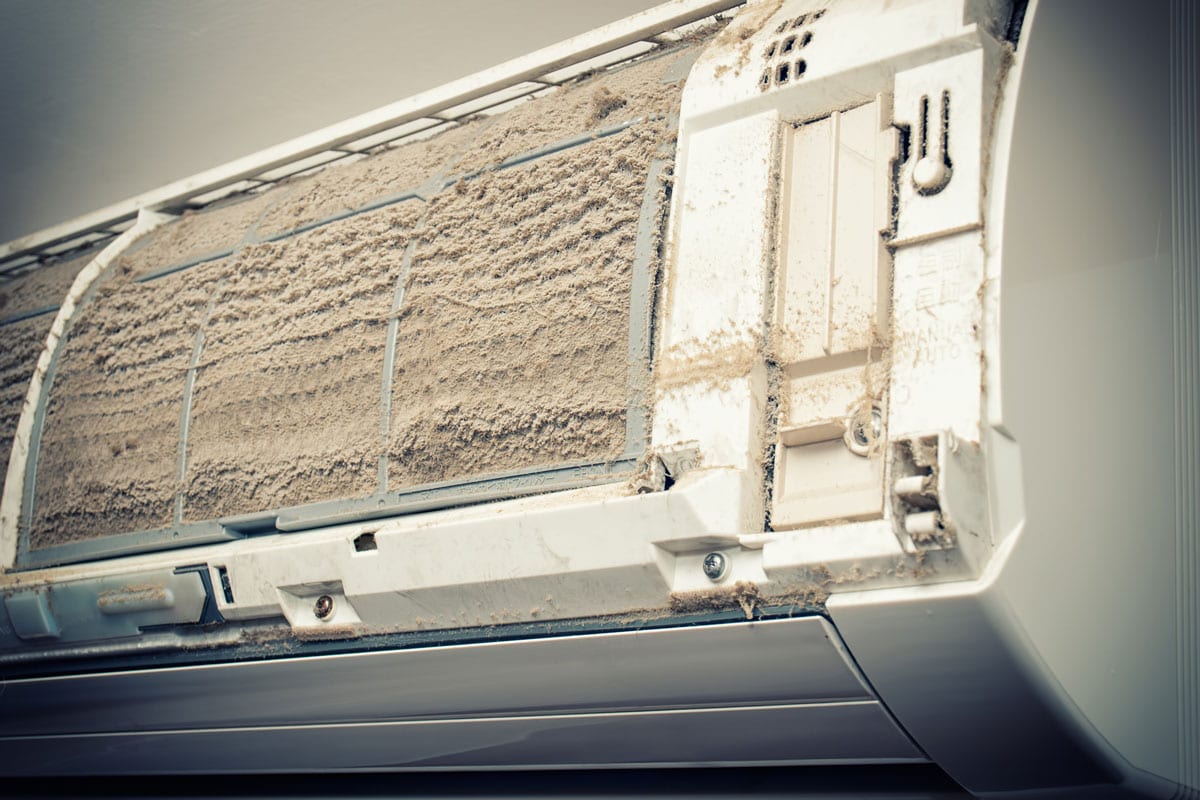
Airflow can be impeded by a clogged filter, which can also raise the temperature of the air conditioners. When this happens, the breaker trips and the air conditioner is prevented from running.
It's best to clean your air conditioner's filter every 30 to 60 days. Doing will prevent your AC from tripping.
Follow this link to see these filters on Amazon.
Condenser Coil Is Dirty
If you're operating your air conditioner with dirty condenser coils, it will result in a short circuit. An electrical short circuit could cause the air conditioner to overheat, tripping its breaker.
Faulty AC Capacitor
The capacitor is a core part of your air conditioner unit since it feeds off the necessary energy to start the machine. Your air conditioner won't start up if the capacitor is either bad or broken.
Check out this capacitor on Amazon.
Your breaker will intervene in this situation, stopping the operation from stopping your air conditioner unit from breaking down.
In Conclusion
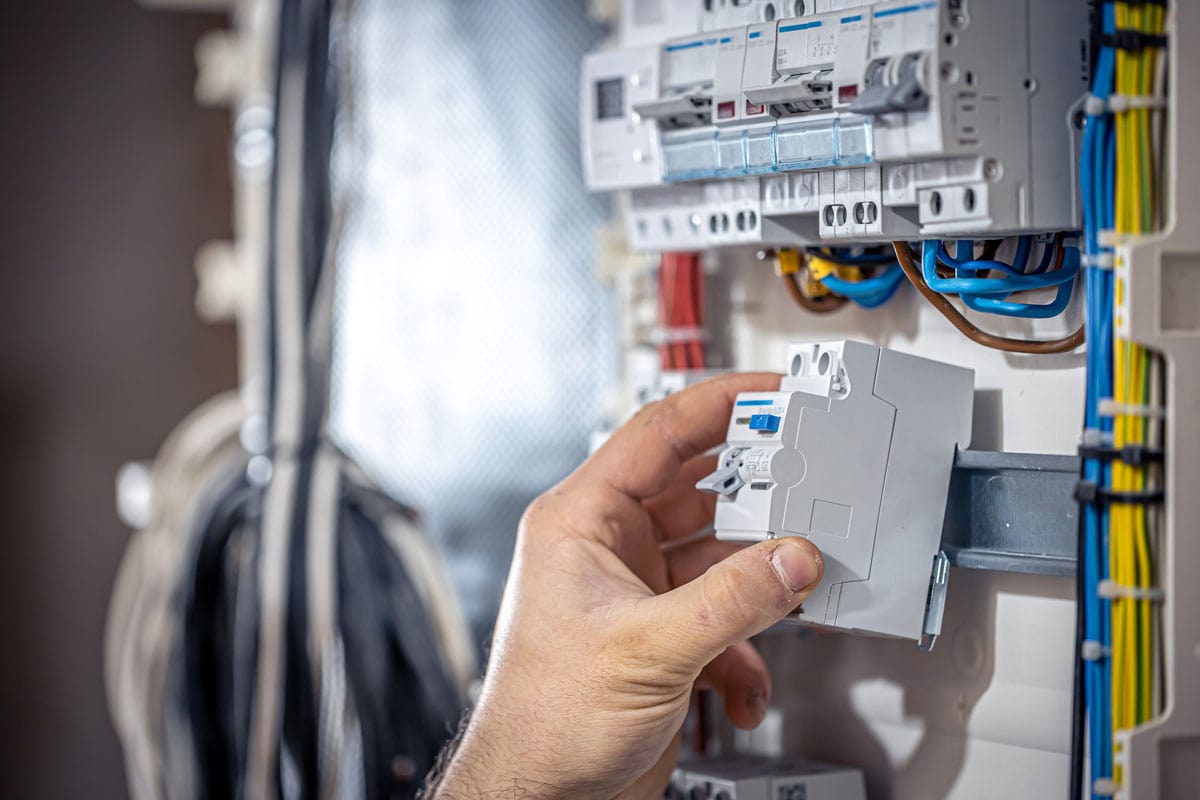
The circuit breaker offers a vital safety role to your air conditioner unit and your entire house. It's always wise to secure its wiring to ensure it can handle the tremendous stress of electrical current.
Choosing the ideal size breaker for your air conditioner will dictate how efficient, effective, and safe it will function. We hope that using this significant knowledge; you'll properly choose the right size of breaker you want in your AC.
Made it this far? Check out these helpful related posts!


